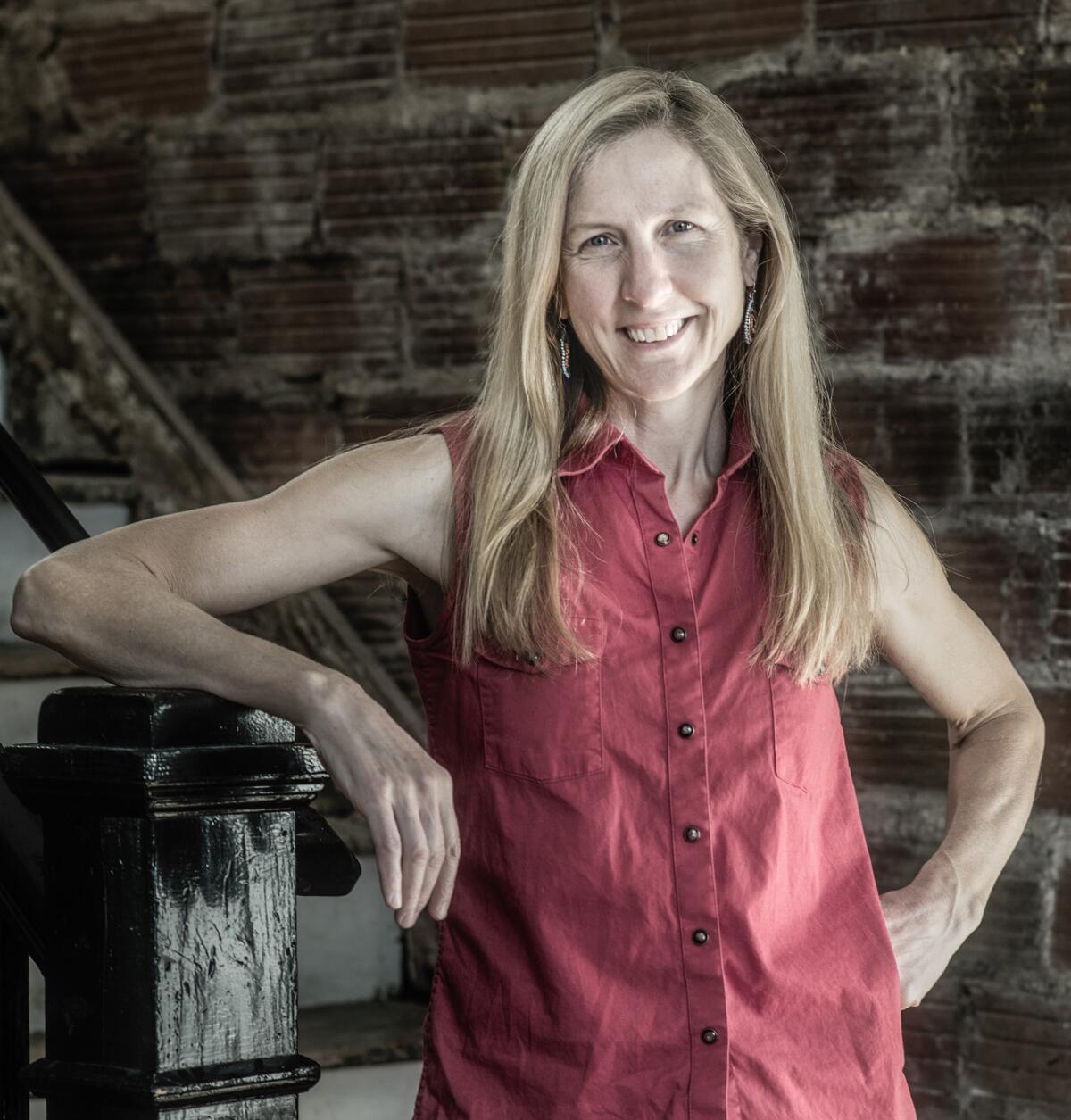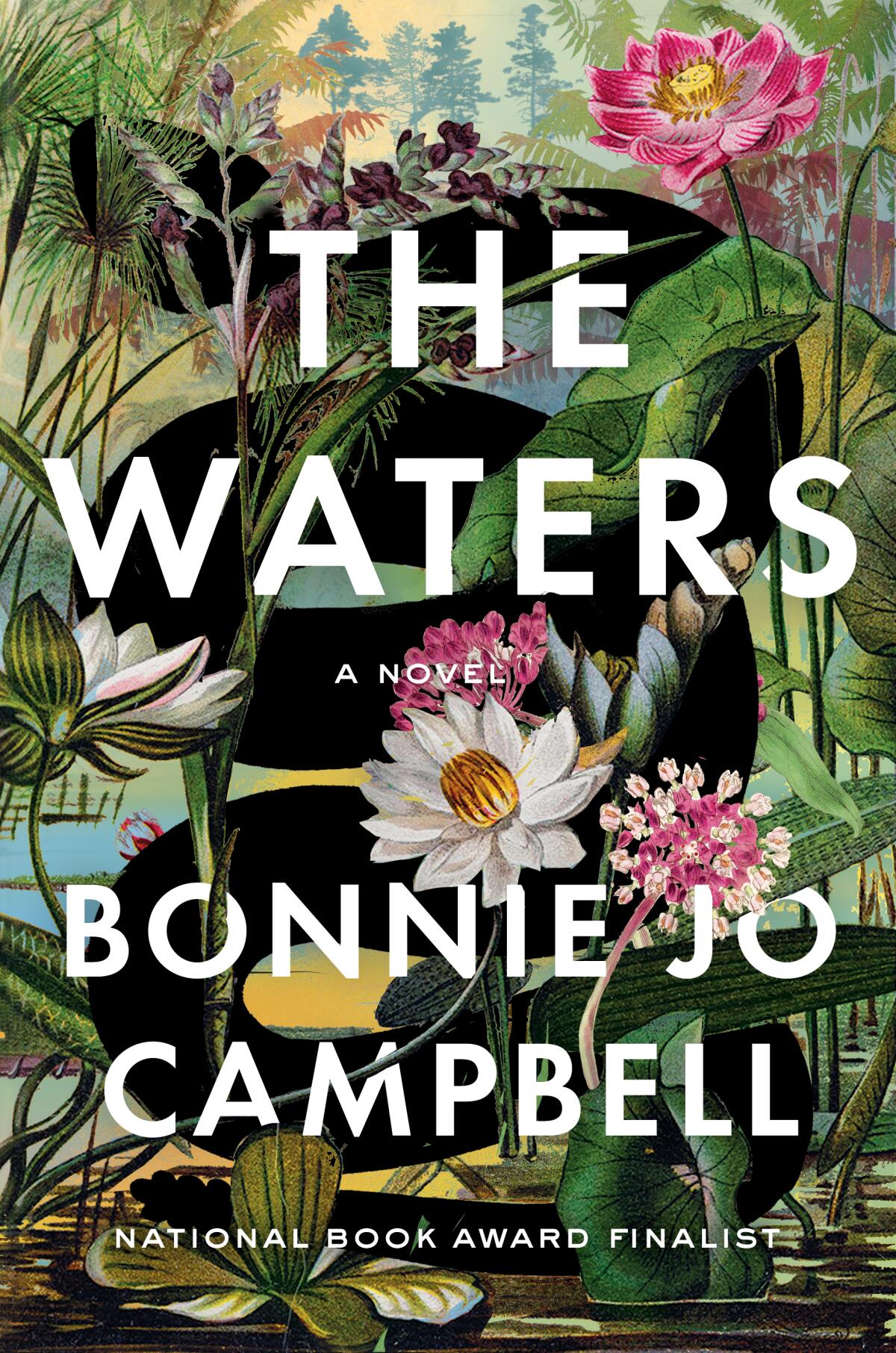An off-the-grid herbalist hits the skids in an earthy new Bonnie Jo Campbell novel

- Share via
Review
The Waters
By Bonnie Jo Campbell
Norton: 400 pages, $30
If you buy books linked on our site, The Times may earn a commission from Bookshop.org, whose fees support independent bookstores.
Readers of Bonnie Jo Campbell’s fiction know that she likes to mix human idiosyncrasies with unusual and sometimes dangerous upper Midwestern ecosystems. Her new novel, “The Waters,” begins with its protagonist-to-be still in the womb, but once she is born, her life is turbulent. This doesn’t scare her; it fascinates her.
She lives on an island in a marshy area in southern Michigan with her grandmother Hermine, an herbal savant who harvests local plants and puts together natural medicines. No one from the neighboring town is allowed on the island, so they meet her in a spot just across a narrow bridge or pick up remedies she has left for them there.
“Most people preferred not to know what was in the medicine she gave them…,” Campbell writes, “and sometimes just having it nearby was medicine enough.” The local residents respect her skills so much that they call the herbalist “Herself.”
Quarantined in Riverside, novelist Susan Straight watches “Gunsmoke” and “Gentefied” and gives away Judy Blume and National Geographic.
Herself is something of an antisocial perfectionist, but her granddaughter (who goes by the name “Donkey” and is an astute witness to all the chaos) admires her. Donkey isn’t allowed to go to school, so she is more or less self-educated, and her only friend is her dog. She appreciates the solitude and the natural diversity of the island — she feels a relationship to the landscape and the birds, the fish and even the rattlesnakes (and there are plenty of those, including one she befriends). What she longs for is some sort of connection to her mother, Rose Thorn (“Rosie”), the family beauty, who comes and goes for reasons Donkey doesn’t understand.

Herself has two other daughters, Molly and Prim. Both older than Rosie, they have rebelled against Herself — Molly by becoming a doctor and Prim by moving as far away as she can (California). After Herself is injured in a mysterious way, who will care for her? Living off the grid with a girl in her early teens doesn’t offer many possibilities. After the injury, the daughters come to the island to sort out the psychological and practical issues enveloping their mother and Donkey.
One of the novel’s most interesting episodes involves a gathering of the three sisters. Rosie has been in bed for a long time (she has an ailment of her own that she doesn’t want to solve). She hears Prim and Molly talking. Campbell writes, “To hear those two voices together, here on the island, was to luxuriate in an old ballad she only remembered in fragments.” She gets up and goes to them. Donkey, who had slipped under her mother’s bed, creeps over to the keyhole and hears Rosie say, “What are you harpies cooking up?” Donkey eavesdrops on a type of discussion that she’s never heard before, one that lays out not only the dilemmas at hand but also the disagreements and the connections that persist.
Campbell’s male characters are interesting too and more or less personify the sorts of men who would make their way as best they can in the rough but fertile (at least for herbs) ecosystem that Herself loves. Some of them are tempting, some of them are scary, and all of them have their opinions about the sisters, especially Rosie. Are love and marriage possibilities? Only if Donkey and the three sisters can overcome their attachment to freedom — which has become its own kind of trap.
Megan Abbott has made a career out of psychological thrillers involving women in competition. “Beware the Woman” takes a different — and timely — new turn
Campbell has been exploring hardship, especially the hardships that independent and exploratory women have to work through, for most of her writing career. She knows that unexpected misfortunes have to be put up with, and the question is always whether to do it your own way or to give in to the people around you and embark on a life you do not want. As I wrote in my review of “Once Upon a River,” “Campbell has a ruthless and precise eye for the details of the physical world. The river is no paradise, with factories like the one founded by [the main character] Margo’s beloved grandfather and run by her uncle polluting both the water and the air. Margo, though, young, innocent and in danger, accepts that this fallen world is hers.”
What I always enjoy in Campbell’s work is her precise way of guiding a reader who may know nothing about southern Michigan across the natural landscape so that it becomes visible and easy to imagine. She also doesn’t hesitate to develop the individualities of each (usually female) character — how they endure the lives they are given, how they get along and don’t get along with others, whether or not they can actually connect to solve a problem. And then there is her underlying sense of humor. (She is amusing, for example, about the way Donkey, an avid self-taught math nerd, uses numbers to understand what she sees).
“The Waters” is a thought-provoking and readable exploration of eccentricity and of all different kinds of love — familial love, romantic love, love of knowledge, love of animals and love of one’s own environment, even when it is a difficult place to live.
Smiley is the author of many works of fiction and nonfiction.
More to Read
Sign up for our Book Club newsletter
Get the latest news, events and more from the Los Angeles Times Book Club, and help us get L.A. reading and talking.
You may occasionally receive promotional content from the Los Angeles Times.








